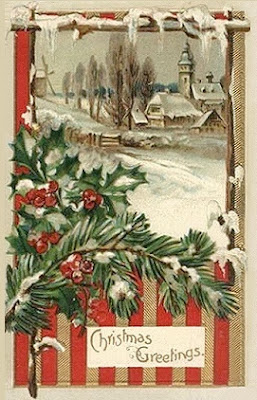Thanksgiving in old Alpine, Utah...
Autumn brings with it the desire to put away food, fuel, warm clothing and bedding, along with feed for livestock against the harshness of winter.
The days shorten and feelings of urgency grow stronger. There are no longer enough hours of daylight to get everything done. Many hands make for lighter work. If everyone in the village helps out, there will be plenty for all. When the work is done, there will be time for fun and celebrations. A time of Thanksgiving.
The hardy settlers of Alpine and Highland, Utah found ways to mix work and fun during harvest time. When the fruit trees in Alpine started to produce, those with orchards shared with others. The ladies came with paring knives and pans and worked for hours preparing fruit to be dried. It would be placed on clean cloths upon the roofs, slabs on sawhorses, or whatever else was handy.
The men brought their husking pegs and shucked corn while the ladies did fruit. The children enjoyed these occasions and anxiously waited for the piles of corn shucks to increase, as they had several games they liked to play among them: hide-and-seek, run-my-sheepie-run, and tag. At the end of the day, a delicious dinner would be served under the apple trees on tables made of boards laid on sawhorses.
Note: Turkeys in Alpine were raised by the Watkins family. Hertha, left, is admiring that year's fine flock.
Other autumn activities which combined work and recreation were quilting bees and "rug-rag bees." No materials were wasted. If the cloth wasn't too worn it was patched into quilt tops. What wasn't good enough for quilts was torn into rug-rags and the remaining scraps were clipped into small pieces to stuff bed ticks, pillows or cushions.
I remember some old quilts Grandma Zetta had from the time when her family raised fruit in Fort Canyon. In those days whenever a quilt began to wear out, she simply recovered it in another layer of fabric. Women like my grandmother definitely followed Brigham Young's counsel to "make it do, or do without." They were born recyclers! Those quilts were extremely heavy, though, as well as damp and musty.
When Thanksgiving Day came in Alpine, it was generally celebrated rather quietly. People spent the day at home with their families. Later they added an afternoon dance for the children. An adult dance and ball game was held in the evening.
The Pilgrim...
Going back even further in time, I learned the First Thanksgiving in Plymouth, Massachusetts, was a traditional English harvest festival to which the colonists invited Massasoit who was the most important sachem (leader) among the Wamapanoag Indians.
The festival was celebrated in response to "God's favorable Providence" in times of plentiful game and bountiful harvest...with no little thanks to the Indians, who had introduced the settlers to native food plants and animals, and deserve much of the credit for keeping the Pilgrims from starving.
Among those gathered at the feast in 1621 was a man named Francis Cooke and his 14-year-old son John. Francis' wife, Hester, was still in England. She would follow in 1623 on the Anne with her three other children, Jacob, Jane, and Hester.
There isn't anything particularly remarkable about this family. If Francis and John had not sailed on the Mayflower in 1620, no one would have remembered them at all, except maybe their descendents. But this is where it gets interesting.
The Pioneer...
One of Cooke's direct descendents was a Mormon pioneer named John Joshua Tanner who came to Utah in 1851 and settled in South Cottonwood in the Salt Lake Valley. The family of John Joshua Tanner now numbers in the thousands...hundreds of which live here in northern Utah County. He is my ancestor as well.
Both men...Tanner and Cooke...were men of conscience and conviction, a remarkable family pattern to hold up over such a long stretch of time. The Pilgrims were refugees from religious persecution in England, just as the Mormon pioneers traveled west to practice their faith in peace more than two centuries later.
I became a member of the Daughters of Utah Pioneers in 2003. Since then I have learned many things about my pioneer ancestors. Because of what I have learned, Thanksgiving has a special meaning for me. Family history is kind of like an archealogical dig. Among the dirt and stones a single golden nugget of information could be hiding. Discovering my family genealogy is a blessing for which I am eternally grateful.
At the top of my list of things for which I am grateful this season, I am placing the names of Francis Cooke and John Joshua Tanner...the Pilgrim and the Pioneer.


















































